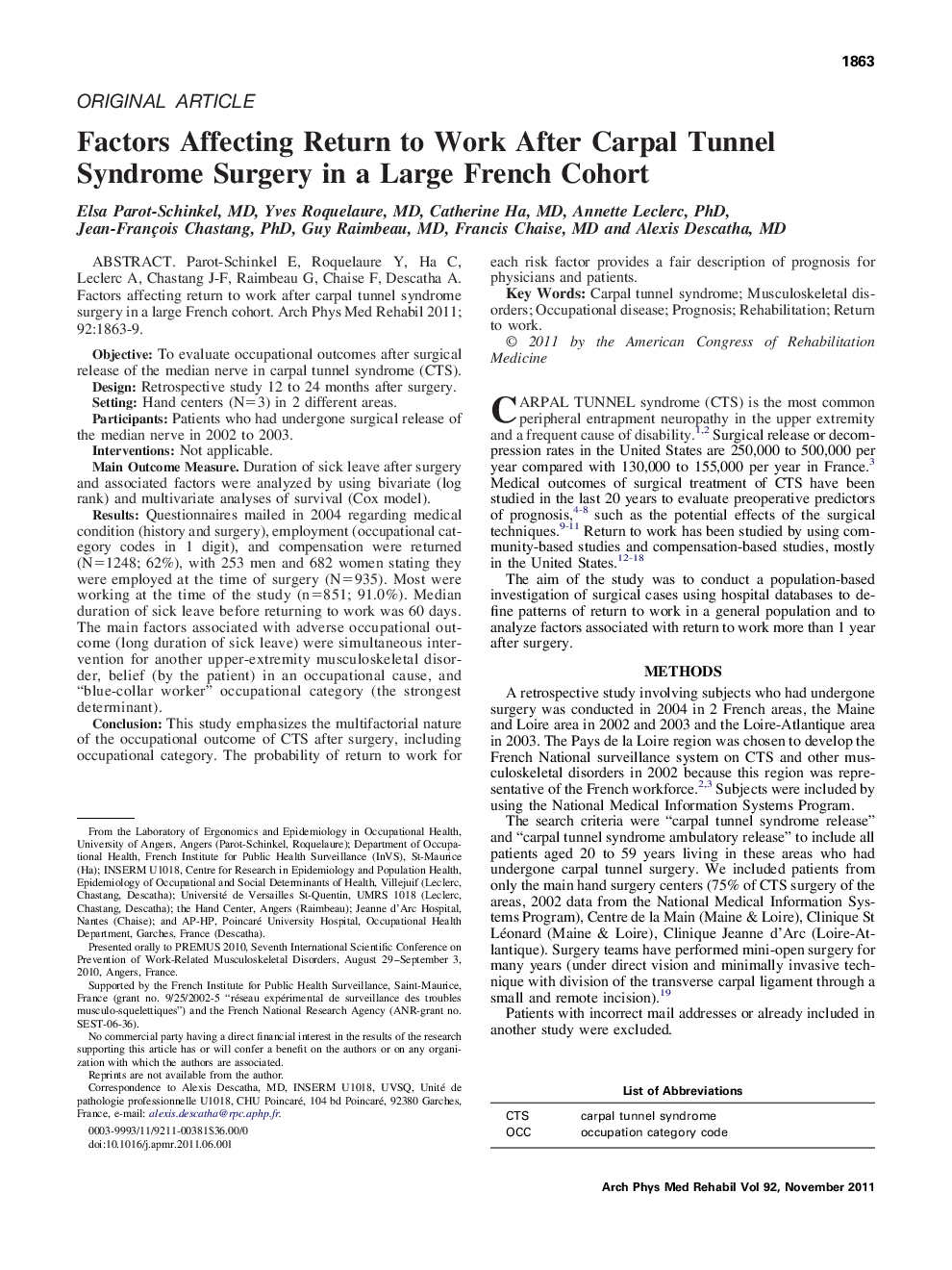| Article ID | Journal | Published Year | Pages | File Type |
|---|---|---|---|---|
| 3449963 | Archives of Physical Medicine and Rehabilitation | 2011 | 7 Pages |
Parot-Schinkel E, Roquelaure Y, Ha C, Leclerc A, Chastang J-F, Raimbeau G, Chaise F, Descatha A. Factors affecting return to work after carpal tunnel syndrome surgery in a large French cohort.ObjectiveTo evaluate occupational outcomes after surgical release of the median nerve in carpal tunnel syndrome (CTS).DesignRetrospective study 12 to 24 months after surgery.SettingHand centers (N=3) in 2 different areas.ParticipantsPatients who had undergone surgical release of the median nerve in 2002 to 2003.InterventionsNot applicable.Main Outcome MeasureDuration of sick leave after surgery and associated factors were analyzed by using bivariate (log rank) and multivariate analyses of survival (Cox model).ResultsQuestionnaires mailed in 2004 regarding medical condition (history and surgery), employment (occupational category codes in 1 digit), and compensation were returned (N=1248; 62%), with 253 men and 682 women stating they were employed at the time of surgery (N=935). Most were working at the time of the study (n=851; 91.0%). Median duration of sick leave before returning to work was 60 days. The main factors associated with adverse occupational outcome (long duration of sick leave) were simultaneous intervention for another upper-extremity musculoskeletal disorder, belief (by the patient) in an occupational cause, and “blue-collar worker” occupational category (the strongest determinant).ConclusionThis study emphasizes the multifactorial nature of the occupational outcome of CTS after surgery, including occupational category. The probability of return to work for each risk factor provides a fair description of prognosis for physicians and patients.
